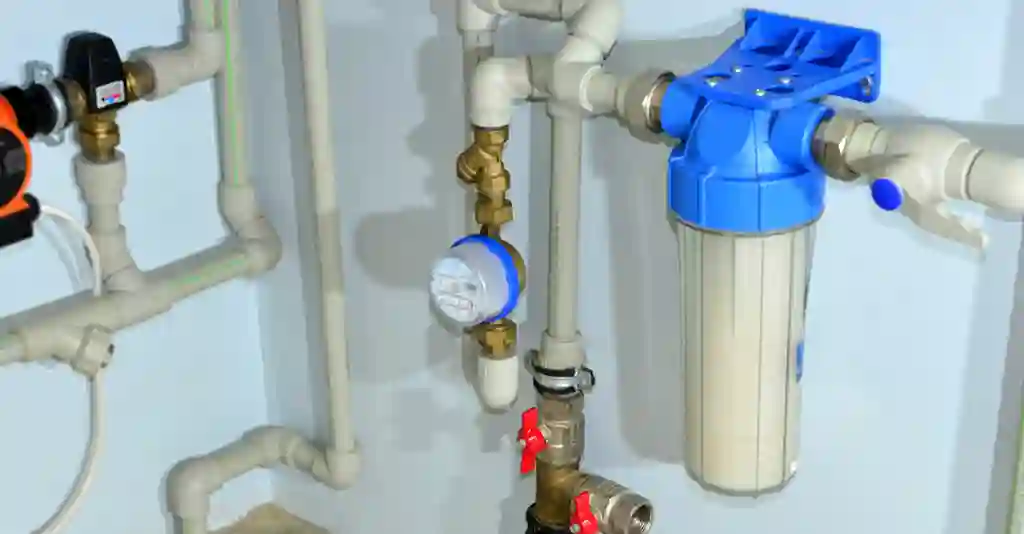Homeowners today have an abundance of options when choosing a home water filter system. The usage of refrigerator filters and water pitchers is simple, affordable, and handy with no installation needed.
Countertop and under-sink systems are particularly space-efficient and provide quick, targeted filtering. However, as toxins can appear in all of your home’s water sources, not simply the kitchen tap, a whole-house water filter might be the obvious solution.
Whole-house water filters, commonly referred to as point-of-entry (POE) filters, remove unpleasant flavors and funk from your drinking water in addition to typical pollutants.
Additionally, they provide fresh, odor-free water to all of your home’s water outlets, including shower heads, appliances, and other fixtures. This prolongs the life of your pipes and home’s appliances and fixtures by eliminating mineral buildup and stains wherever water is flowing.
But are there less cumbersome, more affordable alternatives to this “expensive and tricky-to-install” water filtering system in your home? Please continue reading to find out more about the advantages and disadvantages of whole-house filters as well as how they stack up against other water filtration options before adding one to your shopping basket.
You can then decide whether it is the best option for your house or whether another option would be preferable.
What is the Operation of a Whole-House Water Filter System?
A electrolux fridge water filter system, as the name suggests, filters all the water that enters your home, including water used in bathrooms, kitchen appliances, and washing machines in addition to drinking water.
While whole-home filters may use a variety of techniques and technologies to filter water, their fundamental workings are the same.
These POE systems are normally installed at your home’s main water line, which is typically in the basement or a utility closet, where water first enters your home. This location makes sure that every drop of water that enters your house is filtered.
The filter system quietly removes impurities from your water while also getting rid of cloudiness, bad odors, and odd tastes.
The water heater, the water taps, and other water-using equipment can all utilize the water after it has been properly filtered and passed through a water softener, if necessary. A whole-house filter system may be able to treat several thousand gallons of water per day, depending on its capacity.
What Are the Removables from Water by Whole-House Filters?
Whole-house filtration systems are made to target a wide range of contaminants in water, remove them, and address various problems with water quality. Which impurities need to be removed and which filter is appropriate for your home will depend on the quality of the water in your residence.
Which features of whole-house water filtration systems are pros and disadvantages?
Whole-House Water Filter Systems Benefits
While pitcher and faucet filters are affordable and practical, a whole-house water filter may provide your family with unrivaled performance and peace of mind. The advantages of establishing a POE system in your home are listed below.
Your mind is at ease as a result. Making ensuring that all of the water in your home has been treated is simple with POE devices. As a result, you may relax knowing that every single drop of water that enters your home has been filtered. You can use filtered water for bathing, cleaning, cooking, and drinking.
It cleans water of a wide range of pollutants and toxins. Toxic water contaminants such as Volatile Organic Compounds (vocs), PFAS, pharmaceuticals, arsenic, chromium-6, iron, herbicides, pesticides, nitrates, heavy metals, and many more can be removed with the aid of whole-house water filter systems.
The amount of chlorine decreases. Despite being a potent water disinfectant, chlorine can exacerbate allergy symptoms and irritate your skin and hair.
Additionally, it may produce toxic metabolites that are hazardous if ingested, breathed, or applied topically. Fortunately, a whole-house water filter may eliminate chlorine from your drinking and showering water by up to 99%.
It makes water taste, look, and smell better. Poor-tasting water can be quickly treated with a whole-home water filtering breville cleaning disc system. Chlorine, which is frequently to blame for a water’s bad taste, will be removed by filtration systems.
Additionally, water that seems hazy may contain contaminants like silt. Fortunately, sediment may be eliminated with a whole-house water filter.
It increases the lifespan of appliances and pipes. Hard water’s negative effects can be lessened by whole-home water filter systems with a water softener feature. Most systems require a water softener because they can’t usually reduce hard water on their own. Pipe clogs are less likely to occur as a result of the softening process, and appliances might last longer. Even your skin and hair may look better, and your glassware and clothes may be cleaner.
It eliminates plastic waste and lowers filtration costs. Although establishing a whole-house system can be expensive, depending on the number of sources that require treatment, it may be less expensive than maintaining many point-of-use (POU) devices at each tap. Additionally, a POE system reduces trash production because it does not use single-use plastic, which is excellent for the environment. Under-sink, shower, and countertop water filters are examples of POU devices.
It requires little upkeep. With some devices lasting 5-7 years before needing a filter replacement, POE systems are more dependable and straightforward to maintain due to their increased capacity.
Whole-House Water Filter System Drawbacks
POE filters aren’t flawless, much like other home water filtration systems. Whole-house filters have their advantages, but you should be aware of their disadvantages as well before making a purchase.
It has a significant upfront expense. The cost of whole-house systems is typically much higher than that of POU systems.
It might need to be installed by an expert. This system may need to be installed by a qualified plumber in your area, which will increase the cost.
Water pressure may be affected. Water pressure may decrease since the filter requires the water to move through it quickly, especially if you’re using several faucets or appliances at once.







